Five Big Battles To Watch For At Labour Party Conference
7 min read
Keir Starmer’s first in-person party conference since he was elected leader in 2020 hasn’t even begun and the party is already arguing about a number of explosive issues.
As members, delegates, MPs and the shadow cabinet descend on Brighton for a fractious few days by the sea here are five key flashpoints facing Labour in the coming days.
1) Fallout from the proposed one member one vote (OMOV) leadership rule change 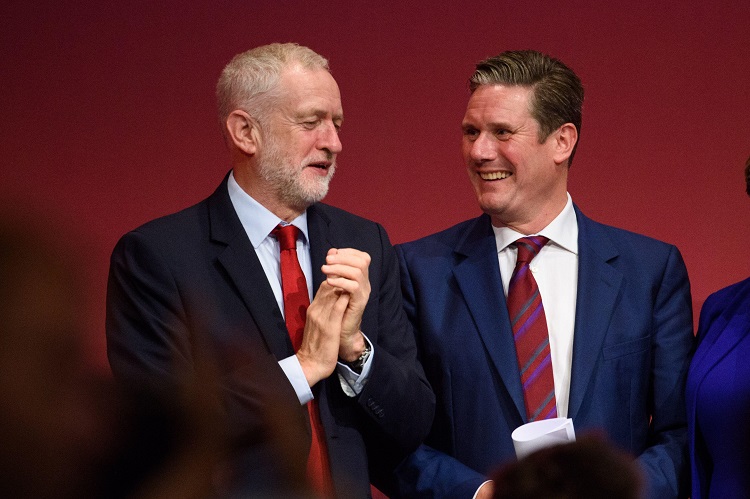
On Saturday morning, it was reported that Keir Starmer had abandoned his plans to scrap the one member one vote (OMOV) leadership model, which hands a significant amount of power in electing a party leader to the wider membership.
While Starmer himself was elected via this system, more pertinently it was the model that ensured Jeremy Corbyn’s victory when thousands of new members joined up to vote for him.
Starmer wanted to return to the electoral college system that gives party members, affiliated organisations such as trade unions and MPs a third of the vote each.
In theory it would give more power to key long-term stakeholders and was been described by Starmer allies as a bid to “de-Corbynise” the party.
But unions were unhappy, with Unite – the party’s biggest donor - and the TSSA opposed. Some Labour MPs were also annoyed and saw it as eroding a democratic system where everyone's vote had an equal weight.
“This power grab must be resisted by everyone who believes in a progressive, democratic Labour Party,” Coventry South MP Zarah Sultana, one of the overhaul’s most vocal critics, wrote in Tribune magazine this week.
Shadow minister Alex Sobel said it looked like a “fix for MPs” while former shadow chancellor John McDonnell said it was "dishonest" of Starmer to try and introduce this policy because he did not mention it when he was running for leader.
On the morning of conference, it was reported that Starmer would instead press ahead with proposals for a watered-down set of rule changes. It remains to be seen whether they will pass, and even typically supportive MPs were said to be furious at how the situation had played out.
2) There could be a vote on General Secretary David Evans’ appointment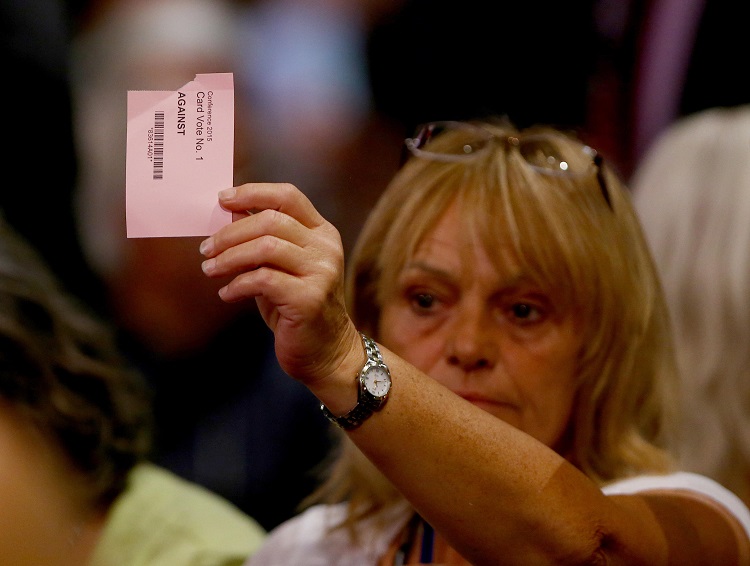
David Evans was appointed as Labour’s General Secretary in May 2020, but the rulebook dictates this must still be approved at party conference.
Usually a noisy acclamation of ‘ayes’ seals the deal, but in what is gearing up to be another factional battle, Evans’ position could be pushed to a full vote, possibly on Saturday.
In recent weeks the Labour left have ramped up efforts to get supporters to vote against Evans. One reason is his involvement in Jeremy Corbyn’s suspension from the party after the former leader claimed the scale of anti-Semitism had been dramatically overstated for political reasons.
Reportedly unfair and ill thought-out investigations of MPs and young activists have also riled the membership. Recent events under Evans’ tenure include the decision to put Jarrow MP Kate Osborne on notice for breaking the party rules, only to retract and apologise to her days later. The chair of Young Labour, Jess Barnard, was also briefly investigated for her Tweets relating to trans rights, and for saying she would block “Terfs” – a deeply contentious term meaning “trans-exclusionary radical feminists” – online. The investigation was deemed an error and Labour were forced to apologise.
Controversy also surrounds the decision to proscribe four hard left groups, Resist, Socialist Appeal, Labour in Exile Network and Labour Against the Witchhunt, which may have led to the removal of 1000 members.
Labour insiders believe Evans is likely to survive as General Secretary, even if it goes to a full “card vote” process, rather than a more informal show of hands.
In a card vote the balance of voting is a 50/50 split between affiliated organisations including the unions and constituency Labour parties. Left-wing group Momentum have also submitted a motion that would see the general secretary elected by members instead, and serve for a five year term.
3) Questions over Labour’s commitment to green policies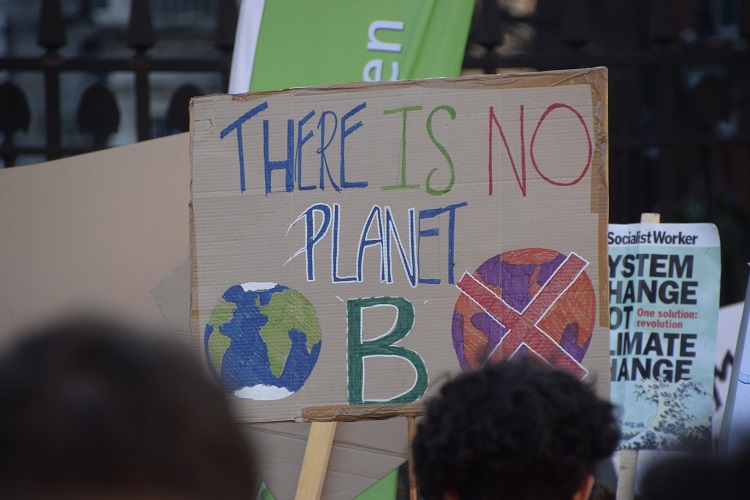
Starmer has said he wants a “green new deal hardwired into every level of government” and will be spending much of conference trying to convince members he is serious about this and has a plan. Members will have a laser-like focus on how enthusiastically he re-commits to the Corbyn-era pledge of reducing emissions by 2030.
Discontent has been bubbling away on Labour's environmental stance for the past few weeks with a major row sparked when the conference arrangements committee rejected a motion put forward by Labour for a Green New Deal.
Their expansive ask for a ‘unionised green jobs revolution’ included retrofitting homes with mandatory building standards by 2030, a national care service and free broadband.
Some saw this as an attempt to resurrect Corbyn-era policies and criticised it for being too broad.
This week, however, the Momentum backed group got this decision overturned on appeal with 3,500 people reportedly writing to the party to try and get it heard at conference.
Whether there is a vote on the Green New Deal depends on whether it passes a priorities ballot as there are likely to be many environmentally focused motions put forward, and then the party’s compositing process. There will be some upset if it doesn’t make it to the floor.
There are also rumours circulating that hard-won green commitments could effectively be bartered away by Starmer to get one of the crucial unions, the GMB, on board with proposals to change the leadership process back to the old electoral college system. GMB disputes this.
Any radical climate commitment, of the kind seen in the Green New Deal, can be seen as being at odds with workers interests if it leads to job losses or extensive retraining. But any notion it will be watered down to appease the GMB has been denied. The union is also keen to push the fact they run their own Green New Deal programme.
4) LGBTQ+ rights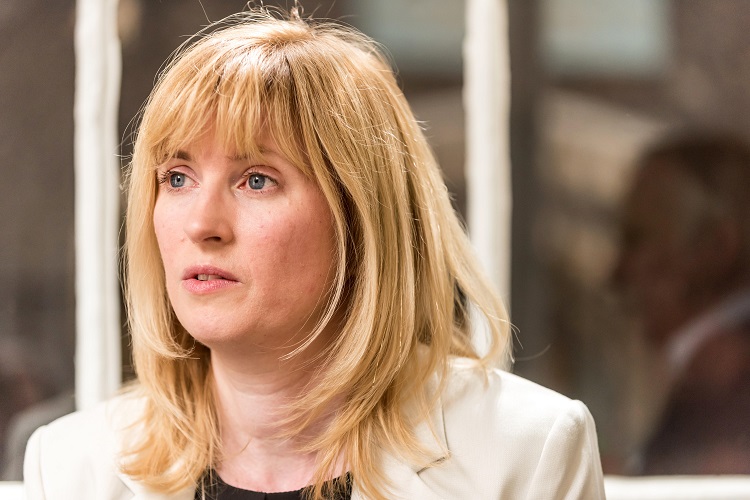
Canterbury MP Rosie Duffield has pulled out of attending this year’s conference, citing fears for her safety sparked by her position on transgender rights. Last week Duffield told The Sunday Times she believed that the party’s LGBT+ Labour group “now seem to hate my guts and I feared they’d have a massive go at me at conference”.
She has been vocal about her belief that certain spaces, like domestic violence shelters, should not be accessible to people born in male bodies and has tweeted that only biologically female born women have a cervix. This has led to a barrage of online criticism from some people who believe this dismisses trans women.
While Duffield, a domestic abuse survivor, says she has been threatened over her views, she said she didn’t “really [think] I was going to be attacked” at Conference but “did not want to be the centre of attention”.
A Labour spokesperson confirmed the party’s position on access to gendered spaces going into conference is the same as their 2019 manifesto and there is no reason to expect it would change. They have pledged to update the Gender Recognition Act to enable gender self-identification, and also support the current single-sex-based exemptions contained in the Equality Act 2010 which allow for cisgender women (women born in female bodies) only spaces.
The discussion is very much live within the party and those with different views on the subject are calling for more clarity from the Labour leadership.
5) …oh, Jeremy Corbyn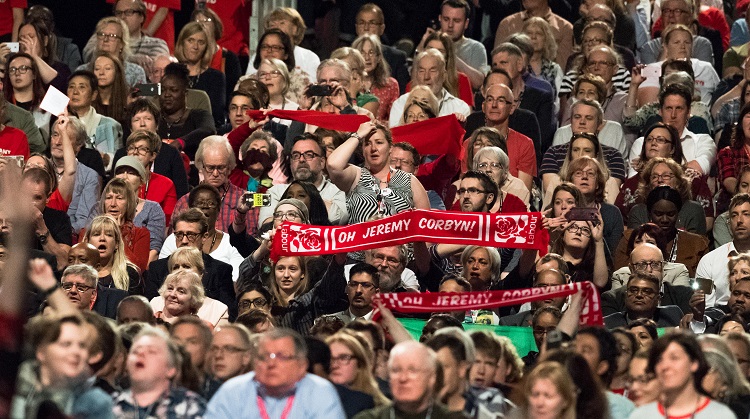
Former leader Jeremy Corbyn is still not a sitting Labour MP after having the whip removed for claiming the scale of anti-Semitism in Labour had been “dramatically overstated” for political reasons by opponents and the media.
Corbyn remains a member of the party, so can still attend conference, but the fact he has not had the whip restored is a major bone of contention for his supporters.
Labour MPs PoliticsHome spoke to this week ranged from feeling a little nervous about Starmer being heckled, to expecting outright booing from the conference floor. One left-winger said a rendition of the “oh, Jeremy Corbyn”, an echo of the anthem crowds sung during Corbyn’s time as leader, during Starmer’s speech is likely.
The socialist The World Transformed fringe event held down the road from the main conference centre has a few speaking slots for Corbyn and former shadow chancellor McDonnell, and are expected to be popular.
